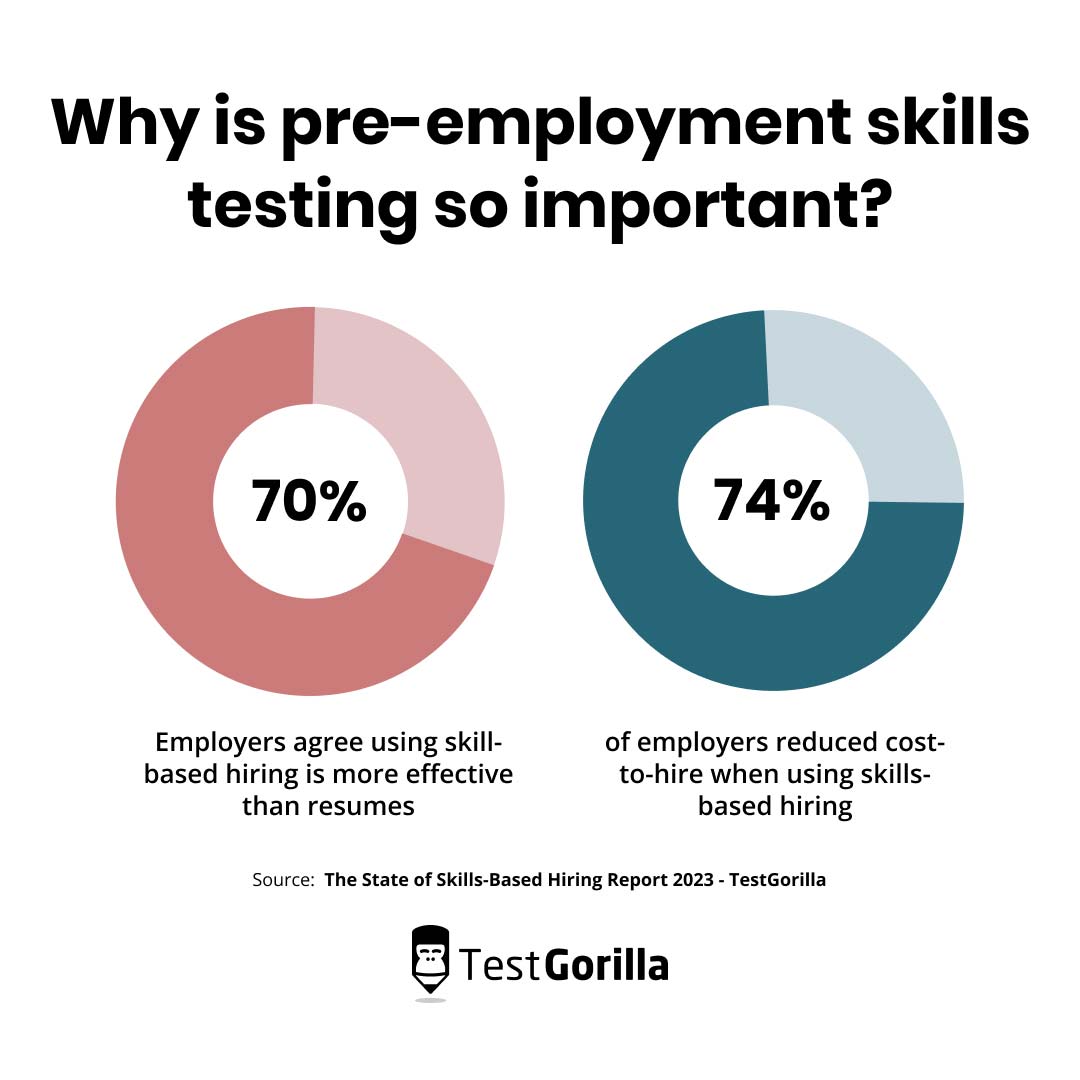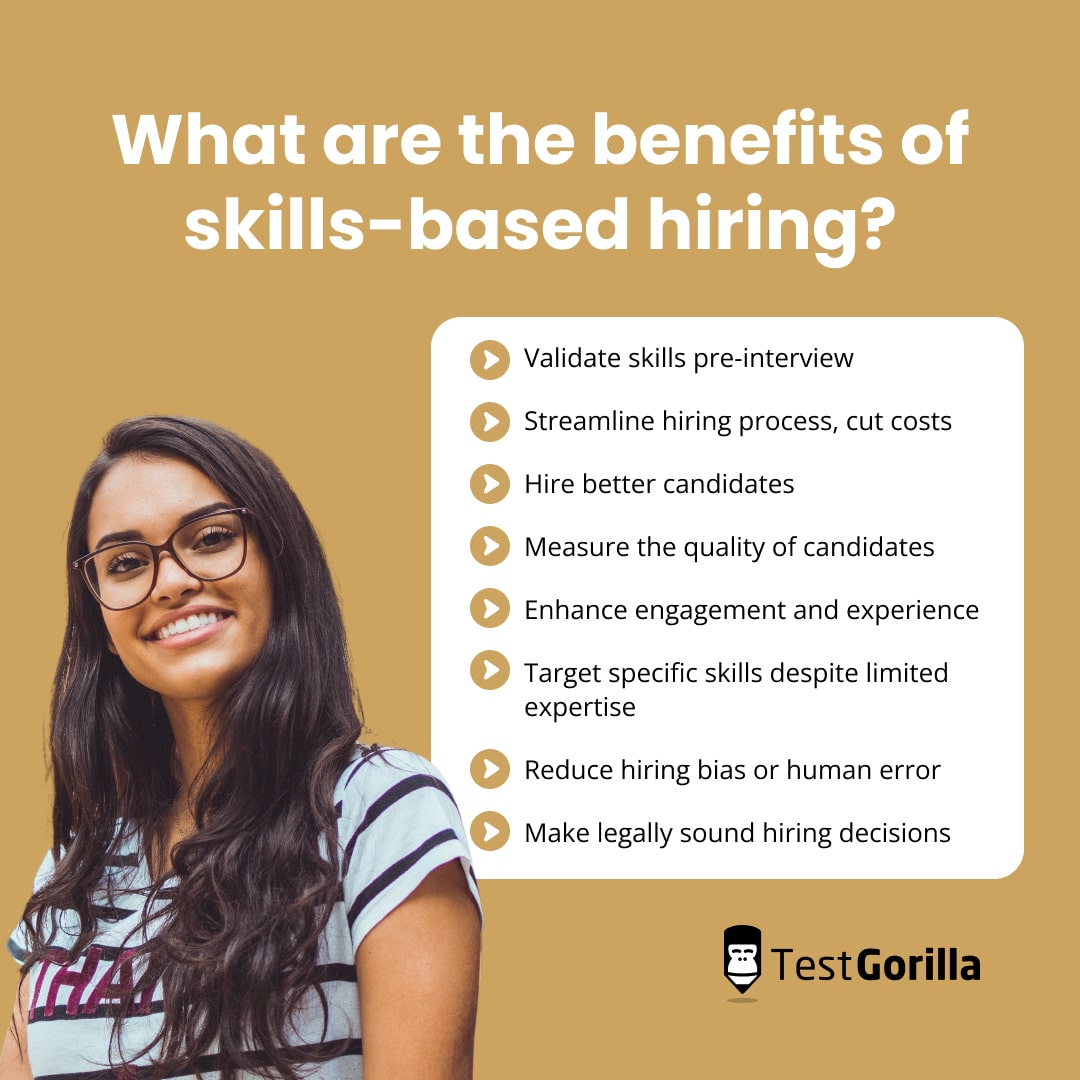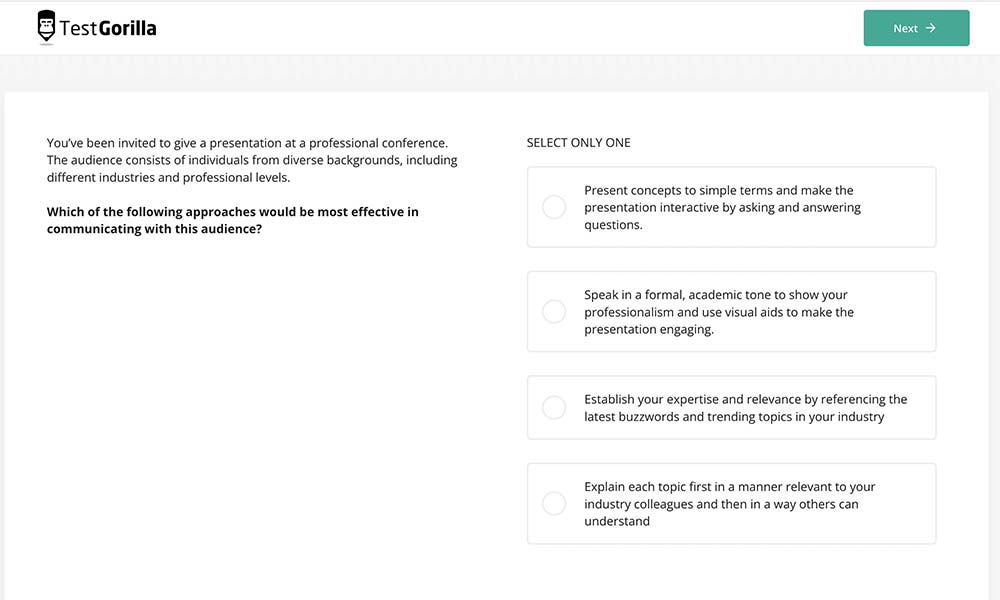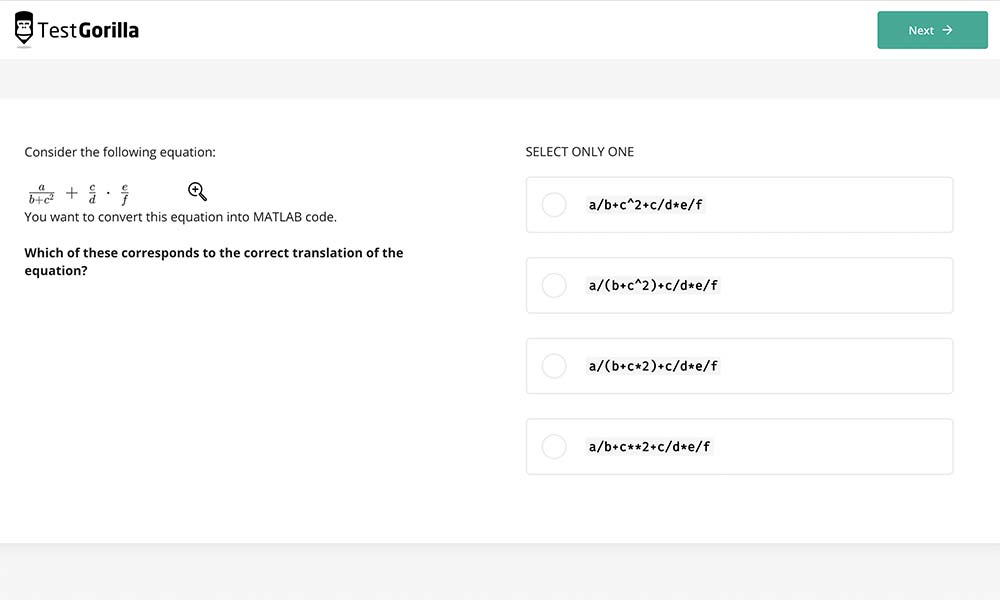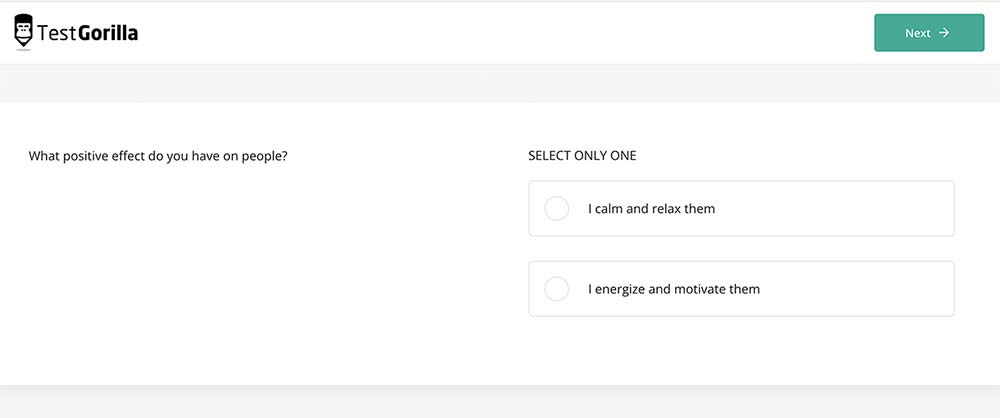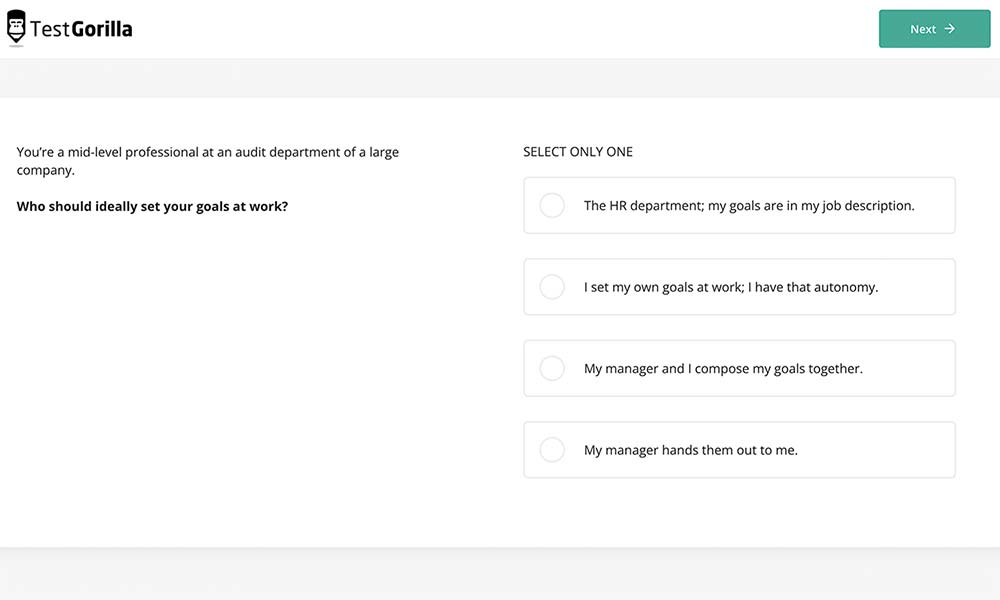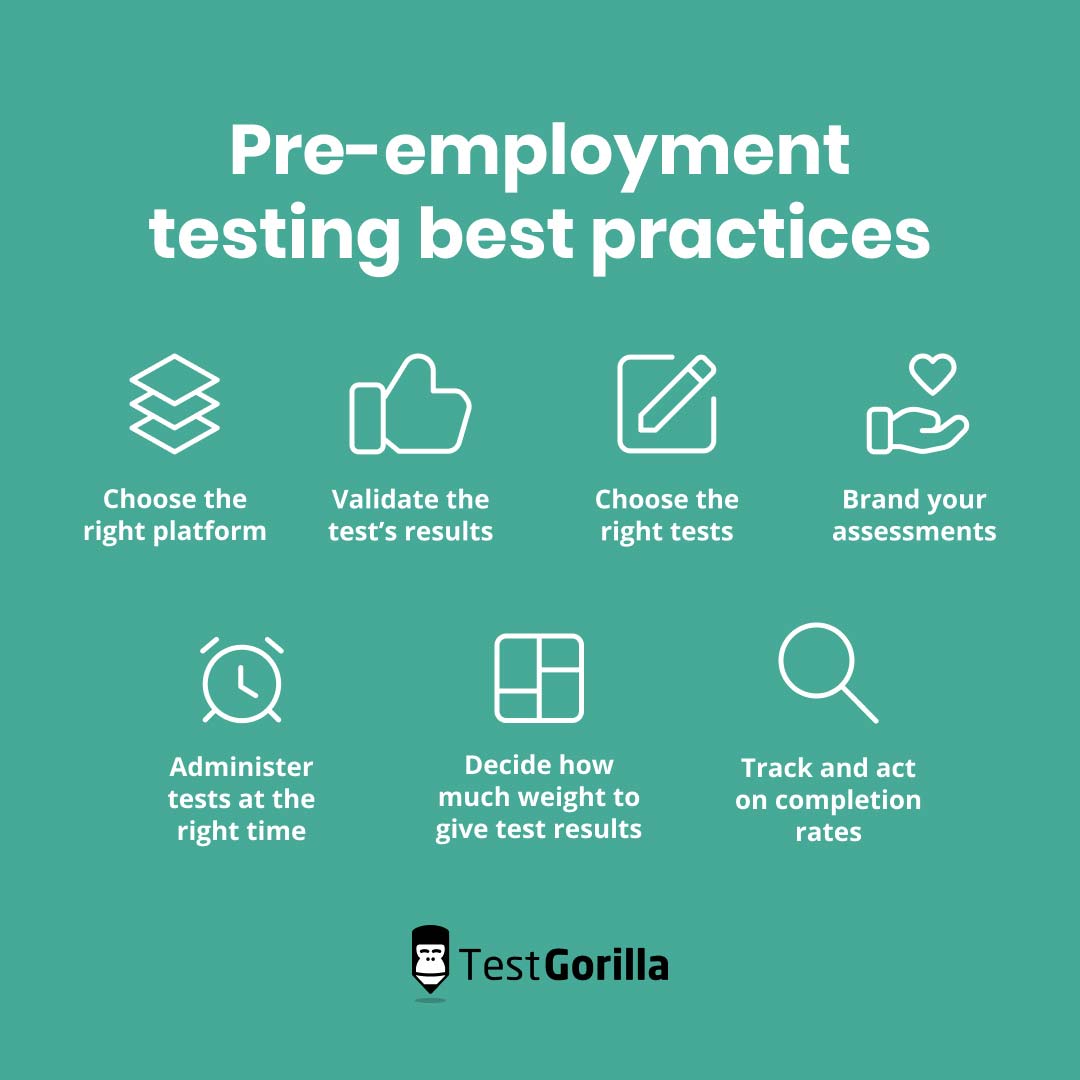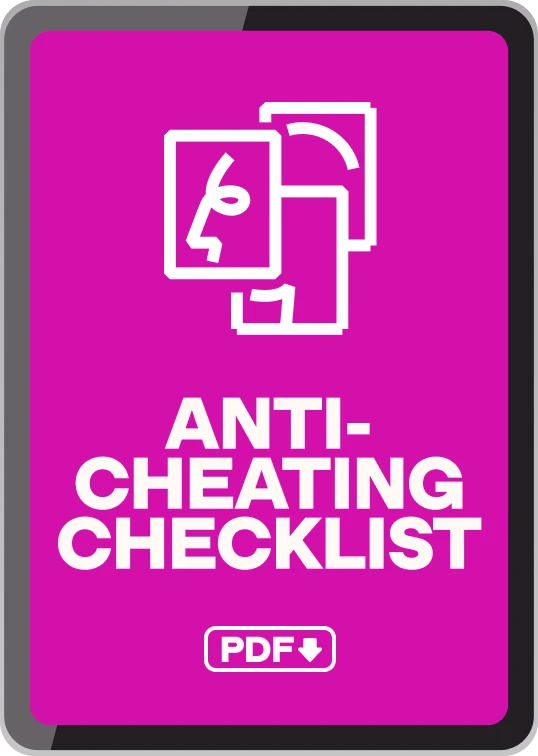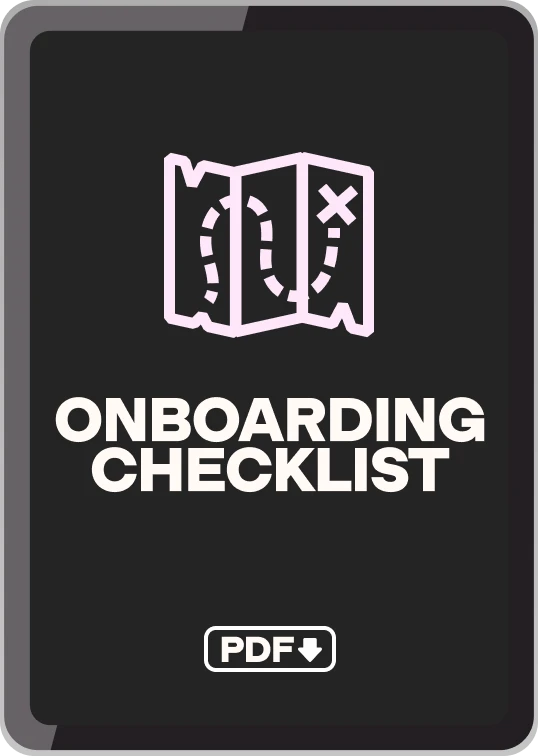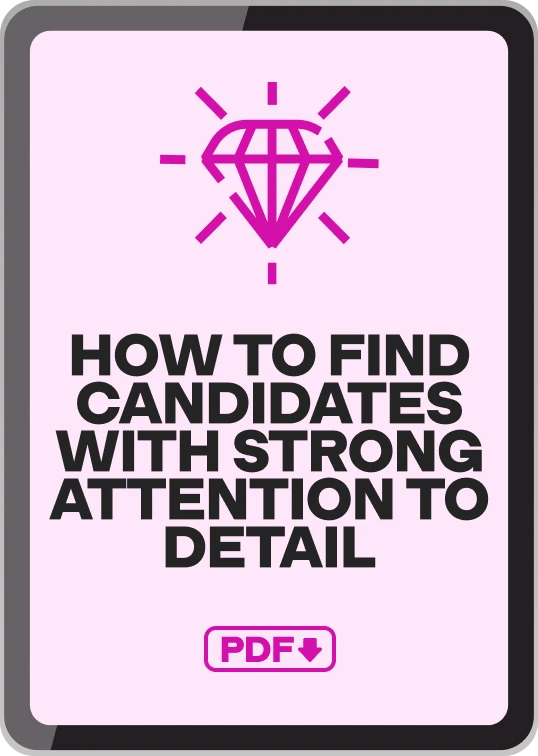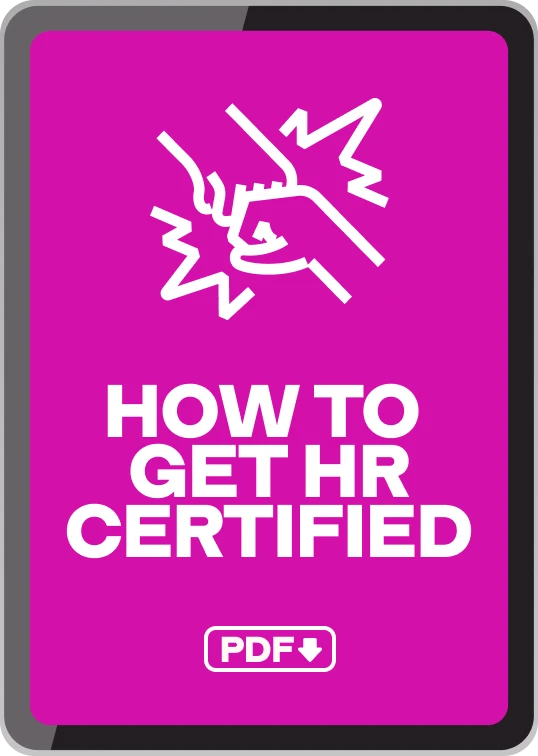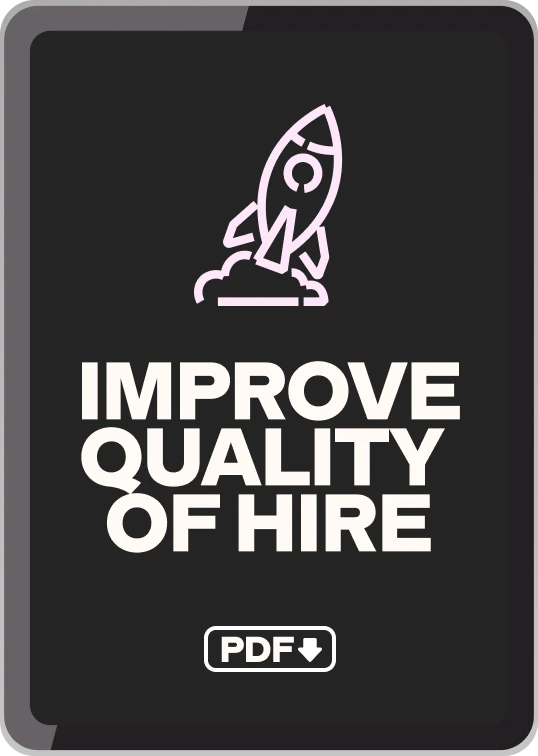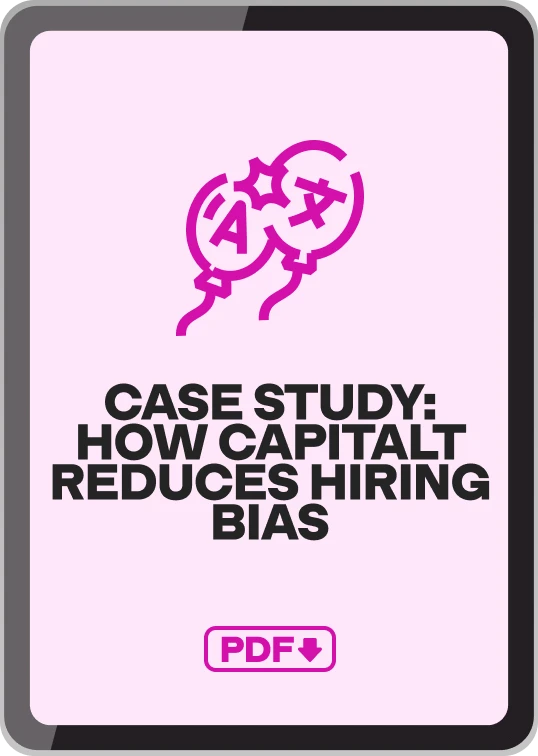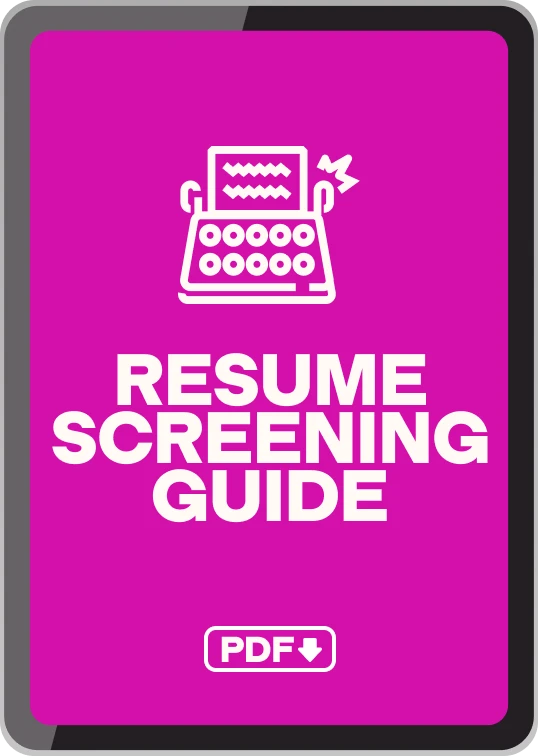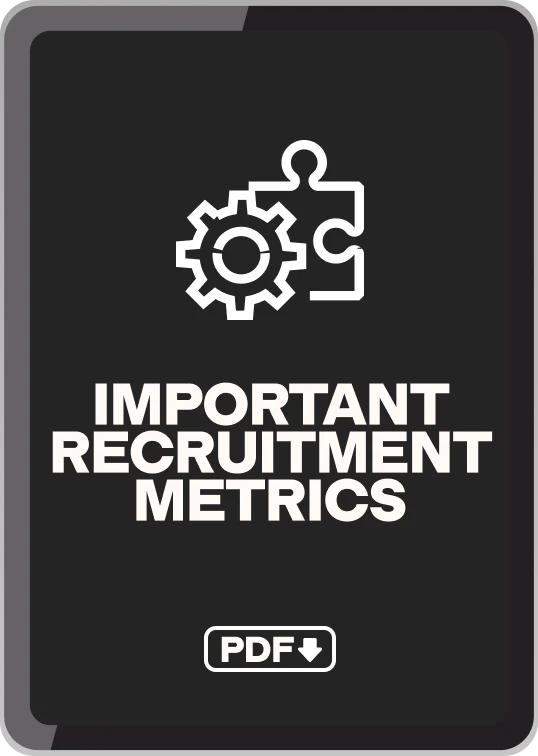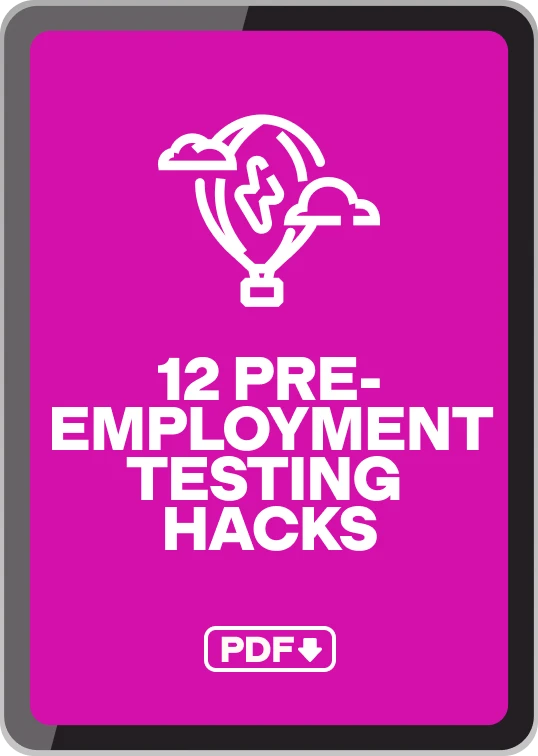The ultimate guide to pre-employment skills testing (+ 8 types of tests)
Regardless of size, every business depends on professional, skilled employees to be successful.
Making the wrong hire causes a lack of productivity and can cost your business thousands of dollars. This is exactly why pre-employment skills tests are a key tool in the hiring process.
They are a smart, efficient way to make the right hiring decision the first time around. And we all know that the stakes are high – so, you need to make sure you have the best tools in your recruitment toolbox.
And, let’s face it – screening resumes must be one of the least efficient ways to evaluate applicants’ skills during the hiring process.
What’s a better way to assess skills?
Pre-employment skills testing.
Pre-employment skills assessments enable you tо:
Evaluate applicants’ skills fairly and objectively, using the same criteria
Put skills first and build а faster and more efficient hiring process
Provide a positive candidate experience
Make better hires and improve employee retention
Below, you’ll find out all you need to know about pre-employment assessments, what types of skills evaluation tools there are, how to make the most of them, and more.
Table of contents
- What is pre-employment skills testing?
- The history of pre-employment skills testing
- Why is pre-employment skills testing so important?
- What are the benefits of pre-employment skills testing?
- Top 8 types of pre-employment skills tests
- Top 7 best practices to get the most out of pre-employment skills testing
- Enhance the hiring process with skills tests
What is pre-employment skills testing?
Pre-employment skills testing is an important part of the hiring process that companies use to evaluate their candidates’ skills.
This step is an effective way for businesses to make sure their candidates are skilled enough for the role they are hiring for. It strongly shows your candidates’ ability to carry out the role successfully and perform well if your company hires them.
Companies frequently use recruitment tests to narrow down the candidates who have applied for a vacancy. They can then select from the remaining candidates and invite them to an interview.
The history of pre-employment skills testing
The earliest forms of pre-employment skills testing go as far back as 206 BC. During the Han Dynasty, China used cognitive employment examinations to elect suitable candidates for government roles.
The West took up the practice over time and the U.S. used it during the First World War to recruit soldiers.
For this purpose, the Army Alpha test was used to assess the recruits’ verbal and numerical skills and their ability to follow instructions. The results were used to find out which specific role suited them. Scores also determined the likelihood of a soldier taking up a leadership position.
Nowadays, many organizations use pre-employment skills testing to make better hires, including companies like IBM, Google, EY, Revolut, and many more – usually, with the help of a talent assessment platform.
This is a significant improvement compared to pen and paper tests that candidates took in the past. Although early skills tests were unrefined, recruiters used them for the same purpose as today – to discover top talent.
Why is pre-employment skills testing so important?
Dedicated pre-employment skills testing platforms like TestGorilla enable recruiters to optimize and even automate the recruitment process – but, more importantly, they enable organizations to make unbiased, objective hiring decisions and put skills first.
That is, instead of making decisions based on applicants’ degrees or resumes, or, even worse, their own gut feelings (because, let’s face it, “gut feelings” is another word for unconscious bias), hiring managers can focus on candidates’ actual skills and knowledge.
According to 98% of the 1000+ employers we surveyed for our 2024 State of Skills Based Hiring Report, skills testing is more effective than resumes at identifying talent (this is up from 70% in 2023). Furthermore, 78% of employers using skills-based hiring in 2024 reduce their cost-to-hire (4 percentage points higher than in 2023).
But recruitment is not only about discovering the perfect person for the role in the fastest time and keeping recruitment costs low. As a recruiter, it’s also important to focus on:
The candidate experience
Ensuring your recruitment process reflects your brand and company culture
Avoiding bias
Protecting your candidates’ data, and
Considering other legal aspects of hiring
Pre-employment skills testing can help with all this. With the right skills assessment platform, you’ll be able to:
Get objective information on each candidate, their skills, and how they compare to others
Discover candidates who can meet the needs of your business
Build an on-brand recruitment process that provides a great candidate experience
Make sure your applicants’ data is secure (yes, we know, GDPR for employers can be quite confusing)
Plus, anyone working in HR knows that, unfortunately, not all candidates will always be honest about their skills. According to StandOutCV, 55% of Americans have lied on their resume at least once.
So, how can you make sure that the next candidate who applies at your company is 100% truthful about their skills?
Pre-employment skills assessments help you do just that.
Candidates love pre-employment skills testing as much as employers
Employers can benefit significantly from using a fair and unbiased objective assessment method.
What about candidates, though? What’s in it for them?
Actually, pre-employment testing is beneficial to candidates, too. Not only does it give your applicants an insight into the role they would carry out, it also shows them that you value their skills above all else – and that you’re willing to actually use a skills-first approach to hiring to find the perfect match.
The result? More candidates are able to get access to their dream jobs: 90% of the employees we surveyed said that the opportunity to show their skills increases the probability of securing a dream job.
Plus, it can give your candidates insights about:
How they might be successful in the role
Which skills are the most important
Their own strengths and weaknesses and improve upon their shortcomings
Many candidates prefer to undergo a skills test because it means they are getting a fair assessment. They can also assess if the role is right for them; even a candidate who desperately wants a job will regret getting one that’s a bad fit.
What are the benefits of pre-employment skills testing?
Pre-employment skills assessments make the hiring process more efficient and ensure you’re able to meet your business objectives. They can even increase the chances of an employee’s success in the new role.
Here are the main benefits of pre-employment tests:
Validate skills pre-interview and spend less time on unqualified candidates
Shorten time to hire and reduce recruitment costs
Hire better candidates
Measure the quality of candidates you find from various sources
Improve candidate engagement and deliver an outstanding candidate experience
Target specific skills with various tests and identify suitable candidates even if you lack expertise in the area
Reduce hiring bias or human error
Make legally sound hiring decisions
Let’s look into the details of each one.
Validate skills pre-interview and spend less time with unqualified candidates
Using pre-employment skills tests enables you to check your candidates’ skills before inviting them to an interview – and even before you look at a resume. This is beneficial for two reasons:
You can quickly trim down your candidate list and invite only the most qualified ones to an interview
You gain more information about all candidates and how they compare to each other
With this information at hand, you could even ask questions related to their results. For instance, if you’re hiring a marketing manager, you might test them on PPC advertising, social media management, technical SEO, conversion rate optimization, and email marketing.
If a candidate scores really well on all of the tests except email marketing, you can ask them about their experience in that area to see why they performed poorly on this test.
Additionally, it’s practically impossible to discover whether a candidate’s resume is a true representation of their skills without using a pre-employment skills test.
This is especially true if you take a high-volume approach to hiring. But with pre-employment skills tests, you can quickly identify your most capable candidates, regardless of whether you receive 10 or 210 applications, and weed out those who simply don’t have what it takes.
Shorten time to hire and reduce costs
Making the wrong hire is expensive, not only because of recruitment costs and the person’s wages, but also because of productivity losses for the entire team.
And hiring a candidate might take between a few days and a couple of months. With pre-employment skills testing, you can use assessments to trim down your list of candidates to the most qualified applicants right off the bat.
Rank and screen applicants automatically based on skills and then review, rank, and sort your entire candidate pool in a matter of a few mouse clicks. This enables you to make a hire within days, not months.
In short, making use of skills tests enables you to:
Select top candidates faster, thereby reducing time-to-hire
Make fewer mis-hires, so you spend less time and money replacing people
Hire better candidates
Even if your candidate pool is made up of upright, honest individuals, research shows that experience doesn’t predict a new hire’s success.
In fact, data shows that multi-measure tests – i.e. tests that include a mix of different skills assessments – are the best at predicting on-the-job success when compared to reference checks, job experience, or any test type on its own.
With pre-employment skills testing platforms like TestGorilla, you can use multiple test types to identify the best candidate for every opening.
Measure the quality of candidates you find from various sources
Candidates can take pre-employment skills tests online, which means that you can extend your talent pool and make it truly global.
If you do this, you’ll be sourcing candidates in a number of ways. Some pre-employment testing platforms enable you to track which candidates come from which source (ours does). This gives you the ability to see which sources are most effective when it comes to quality of hire.
For example, if you find that one job board tends to generate a high number of unqualified candidates, you may decide to stop using it.
Improve candidate engagement and deliver an outstanding candidate experience
As a recruiter, you must create an engaging experience for your candidates. Pre-employment skills testing helps you achieve this by giving candidates a chance to prove their skills, rather than just send out a resume and hope for the best.
You may even find that candidates are more likely to complete your assessments because they enjoy the challenge of showing off their skills.
If you use pre-employment skills testing to give candidates a fair opportunity to win the job, they’ll know they’re being judged on their skills and skills alone. If a candidate isn’t qualified for the role, it’s better not to waste your time – or theirs! – with a drawn-out hiring process.
Additionally, on some platforms you can generate a report to send to unsuccessful candidates so they can review their skills and assess their limitations.
This all helps create a positive candidate experience.
Target specific skills with various tests – and identify suitable candidates even if you lack expertise in the area
What if you lack expertise in the area for which you’re hiring?
For example, you are looking to hire a JavaScript developer, but you don’t know anything about coding.
Pre-employment skills tests to the rescue!
Instead of relying on your own knowledge, you can have candidates take a test prepared by a JavaScript expert. Then you can evaluate each candidate without having to understand the subject yourself. All you need to do is analyze the results of the tests and select the best candidates based on the data. Then, you can have an expert on your team interview only the best of the bunch.
You can combine various tests in a single assessment to target a range of skills.
For example, if you are hiring a copywriter in Spain, you might test candidates’ communication, verbal reasoning, SEO copywriting, Spanish proficiency, and reading comprehension skills. This way, you can filter candidates, even if you don’t speak Spanish or have only a vague idea of SEO.
Reduce hiring bias and human errors
Bias can stand in the way of hiring the best person for the job, so getting an objective overview of your candidates is essential – as is reducing human errors. Using pre-employment skills tests directly counters hiring bias and will give you an objective way to evaluate your candidate pool.
Skills tests enable you to rank your candidates without knowing anything about them besides their skill level, thus reducing hiring bias and taking the subjectivity out of candidate assessment.
Instead of relying on resumes, interviews, or intuition, you can quantify each candidate’s skill level.
Another area where human error can crop up is when you’re scoring tests. If you’re administering tests manually, you might inadvertently make errors when gathering your candidates’ data or calculating scores.
Of course, none of this is an issue when your testing software does it for you.
Make legally sound hiring decisions
Ensuring that your hiring decisions are legally compliant is essential.
Pre-employment skills tests are helpful in this regard because they increase your level of objectivity when selecting candidates.
If your hiring approach is questioned from a legal perspective, you can point to your use of skills testing software as one piece of evidence that you take an unbiased approach to hiring. This is especially true if you anonymize the testing process.
Some platforms even enable you to provide reasonable accommodations to candidates with disabilities when administering skills assessments. We offer that feature to make tests more accessible and enable employers to make their hiring processes fairer and more inclusive.
Top 8 types of pre-employment skills tests
There are many types of pre-employment skills testing, enabling you to assess your applicants for different criteria relevant to the role.
Selecting the right type of pre-employment skills test can give you an insight into the candidate’s suitability for the role – and give the candidate more information about your company and the position.
1. Soft skills tests
Soft skills are important because a candidate’s success can hinge on their ability to interact with the team. A candidate with good soft skills is likely to:
Be empathetic
Have good listening skills
Be able to communicate well, and
Be able to adapt to change
Most roles require some level of ability in at least one soft skill (and usually more), so it’s important to determine what you’ll need for a given role and pick the right tests.
For example, TestGorilla’s Communication test can help you assess a candidate’s communication skills in a professional setting objectively.
2. Role-specific skills tests
Role-specific skills help you evaluate specific skills needed for your open role. These skills tend to be easier to quantify and evaluate than soft skills because they’re more technical in nature.
These tests assess the skills that directly affect a candidate’s job performance. Some examples of hard skills include:
Programming languages and frameworks, such as Django, R, MATLAB, and more
Data science
Knowledge of Intellectual Property (IP) law
As a recruiter, you might use a hard skills pre-employment test to hire for many different roles, such as:
Software developers
Data scientists
Translators
UX/UI designers
PPC specialists
Sales representatives
Accountants
… and many more.
These tests feature questions that are related to the fundamental tasks of the role and are particularly helpful when candidates need a certain level of expertise in a particular field to be successful in your open role.
If you’re currently hiring, check out our:
3. Personality tests
Personality tests consist of multiple-choice statements and give recruiters an insight into applicants’ personalities, their sources of motivation, and their ability to adapt to changes within the workplace.
While we don’t recommend using personality tests to make final hiring decisions, they are helpful because they help you gain a deeper understanding of your candidates. USe them in combination with other pre-employment assessments.
4. Culture tests
You can assess whether an applicant is a culture fit (or, as we prefer to say at TestGorilla, a culture add) and find out how the candidate’s values, attitude, behaviors, and interests align with your company values.
This, in turn, helps you build a positive workplace culture, where everyone’s values are in sync.
With our Culture Add test, you’ll first fill out a survey about your values and culture and then ask candidates to take it. Our platform will automatically assess whether you align.
5. Cognitive ability tests
Pre-employment cognitive ability tests analyze a candidate’s mental skills and assess a range of aspects related to how they think.
They are useful because they reveal skills that don’t show up on a resume or cover letter. They analyze cognitive abilities, including attention to detail, the ability to solve logical problems, reading comprehension, numerical reasoning, and more.
These tests consist of multiple-choice options that combine questions from various areas to assess your candidates’ cognitive aptitudes.
Cognitive ability tests are useful for senior and junior roles alike:
For senior roles, the tests measure your applicants’ capacity to make swift, practical decisions
For junior positions, the tests evaluate your candidates’ ability to grow and learn new skills
6. Situational judgment tests
A situational judgment test enables you to find out how a candidate is likely to behave in the job role.
Whereas cognitive tests assess a candidate’s mental abilities and skills, a situational judgment test consists of various hypothetical scenarios that are likely to occur in the role. Your candidates will have to respond to the scenario provided, and you can assess their responses to discover whether they are a good fit for the role.
7. Emotional intelligence tests
Emotional intelligence is an individual’s ability to perceive, recognize, understand, and manage their emotions as well as those of people around them. Some experts in the field like world-renowned author Daniel Goleman believe that emotional intelligence is more important than IQ, particularly for leadership roles.
In pre-employment testing, emotional intelligence tests help you evaluate a candidate’s ability to relate to others in the workplace, work under pressure, and make sound decisions.
Scoring highly in emotional intelligence tests is a must in roles that require candidates to empathize with others quickly. These include jobs in sales, customer support, marketing, and teaching.
You can assess emotional intelligence through self-report tests or emotional intelligence scales such as the Mayer-Salovey-Caruso Emotional Intelligence Test.
You can also use some of our personality tests to gain insight into candidates’ emotional stability, like, for example, the Big 5 (OCEAN) test.
8. Risk tests
Risk tests help you determine which candidates are more likely to follow safety guidelines and help organizations reduce workplace injuries, absenteeism, fraud, and safety incidents.
This type of pre-employment test can also identify candidates who are likely to engage in unsafe or illegal behaviors.
You can use risk tests for a wide range of roles to test for rule adherence and integrity, from jobs in finance to machine operators in a manufacturing plant.
Top 7 best practices to get the most out of pre-employment skills testing
To realize all the advantages offered by pre-employment skills testing, it’s important to follow a few best practices.
1. Choose the right platform
The HR tech landscape is full of pre-employment testing software. You’ll need to decide what your needs are so you can choose the best platform for you – and the one that fits your budget, too.
For instance:
Which openings will you need to fill on a regular basis?
Which tests will you use to assess candidates for those roles?
Which anti-cheating measures are important to you?
Do you need to connect your testing platform to an applicant tracking system (ATS)?
Do you have existing tests you’d like to continue using? If so, it’s important to find a solution that offers custom tests. (Hint: TestGorilla does).
Does the platform have good customer support?
Are its customers satisfied?
How much does the platform cost and how do they bill (e.g. per candidate, flat fee, annual subscription, etc)?
Once you’ve determined what you need and what you’re willing to pay, it will be much easier to pick the right pre-employment skills testing platform.
2. Validate the test’s results
It’s important to validate the data from your pre-employment skills tests so that you know they’re providing valuable insights. Validity refers to the accuracy and reliability of a test’s results. The easiest way to do this is to determine whether the test has criterion validity.
You can assess if a test has criterion validity by having your employees take it. Your top performers should do well, your average employees should do OK, and your below-average employees will most likely do poorly.
If your top performers don’t do well on the test, then it won’t help you identify top candidates. If your lowest-rated employees do well, the test could lead you to make poor hiring decisions.
3. Choose the right tests
It’s also important to choose the right tests for each role. This is called “content validity”.
For example, for a marketing role, a PPC advertising test has content validity if you will be expecting the hire to manage PPC campaigns. On the other hand, if the role will focus solely on email marketing, there’s no reason to test for PPC advertising skills.
We also advise you to combine a few skills tests in one assignment to gain a detailed overview of candidates’ skill sets, rather than assess for a single skill. Define the must-have skills for each role and focus on those.
Our test library features more than 300 tests you can use to evaluate your applicants’ skills – and you can combine up to five in a single assessment.
4. Brand your assessments
Take advantage of the customization features offered by some pre-employment skills software to provide your candidates with a smooth, on-brand candidate experience.
For example, TestGorilla allows you to add your logo and a brand color to all assessments.
You might also choose to include an intro video to add a personal touch to the assessment process.
This will make your company stand out from other businesses that your candidates may be interviewing with. Top candidates will be more likely to want to work with you if they remember your brand.
5. Administer tests at the right time
Choosing when to use tests is key to enhancing your pre-employment skills testing process.
Skills assessments administered before the job interview can help you identify strong candidates to interview. As opposed to giving candidates the tests at the end of the recruitment process, sending out pre-employment skills tests as early as possible also:
Enables you to develop follow-up questions to ask during the interview
Enhances candidate engagement from the start of the recruitment process
Helps you narrow down your candidate pool and spend more time with top candidates
6. Track engagement and completion rates, and take appropriate action
Be sure to monitor your candidates’ completion rates. If you find that many candidates aren’t completing your assessment, you may need to make it shorter. You might also change some of the tests you’ve included.
TestGorilla allows you to include up to five tests, which usually take around ten minutes each, so an assessment is usually completed in less than an hour. But if you choose to add custom questions or use custom tests, the assessment could be much longer.
This may make sense in later hiring stages, but it will be less effective at the top of the hiring funnel.
7. Decide how much weight to give test results
Decide upfront how big a factor the test results will be in your hiring decision – and what other factors will come into play.
For example, almost all employers invite candidates to at least one interview before making a job offer. Some ask candidates to complete a paid trial project as well.
In order to ensure objectivity, the weight given to each of these factors should be determined from the start. This ensures that you don’t subjectively give more weight to a specific element at the end because your team wants a certain candidate to come out on top.
Enhance the hiring process with skills tests
The benefits of pre-hire assessments make them a powerful force multiplier for your team – and enable you to build a workforce of skilled and motivated professionals who are eager to grow.
And, if you use the right tests at the right time, you’ll be able to hire the perfect candidate in a fraction of the time that you’d otherwise need, if you rely on resumes and interviews only.
Create your own pre-employment skills assessment with our free plan – or sign up for a 30-minute live demo to see for yourself why 10,000 companies have chosen us to reinvent their recruitment.
Related posts
You've scrolled this far
Why not try TestGorilla for free, and see what happens when you put skills first.
Latest posts
The best advice on pre-employment testing, in your inbox.
No spam. Unsubscribe at any time.

Hire the best. No bias. No stress.
Our screening tests identify the best candidates and make your hiring decisions faster, easier, and bias-free.
Free resources
This checklist covers key features you should look for when choosing a skills testing platform
This resource will help you develop an onboarding checklist for new hires.
How to assess your candidates' attention to detail.
Learn how to get human resources certified through HRCI or SHRM.
Learn how you can improve the level of talent at your company.
Learn how CapitalT reduced hiring bias with online skills assessments.
Learn how to make the resume process more efficient and more effective.
Improve your hiring strategy with these 7 critical recruitment metrics.
Learn how Sukhi decreased time spent reviewing resumes by 83%!
Hire more efficiently with these hacks that 99% of recruiters aren't using.
Make a business case for diversity and inclusion initiatives with this data.

